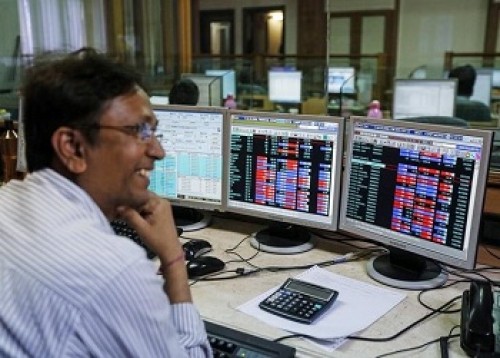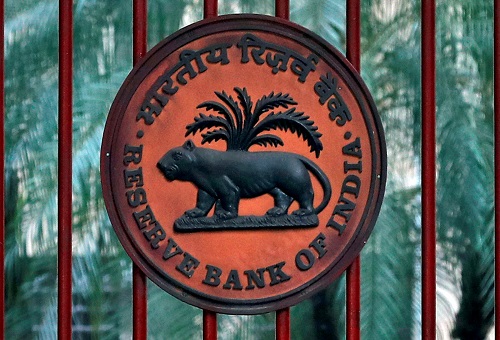Opening Bell: Markets likely to get gap-up opening ahead of earnings season

Follow us Now on Telegram ! Get daily 10 - 12 important updates on Business, Finance and Investment. Join our Telegram Channel
Indian markets fell on Friday with investors nervous ahead of the earnings season coupled with selling by foreign portfolio investors (FPIs) amid worries over US non-farm payroll data. Today, start of the session is likely to be gap-up on account of optimistic global cues. Investors focus will be on the December quarter earnings, which will kick off with Tata Consultancy Services' results, due later today. Some support will come as latest central bank data showed that the Reserve Bank of India’s foreign exchange reserves rose by $44 million to $562.85 billion in the week ended December 30. The data showed the marginal rise in the RBI’s reserves in the week gone by was due to a rise in the central bank’s gold reserves which rose $354 million to $41.32 billion. Traders may take note of Reserve Bank of India (RBI) Governor Shaktikanta Das’ statement that consistently high inflation may pose risks to economic growth and it is, therefore, important for South Asian countries to work towards price stability. Meanwhile, Finance Minister Nirmala Sitharaman has said the optional income tax regime with seven tax slabs was brought in by the government to ensure lower rates for those in the low income bracket. However, traders may be concerned as advanced estimates of National Income for 2022-23 revealed by the National Statistical Office (NSO) showed that Indian economy is likely to grow at 7 per cent in 2022-23 as compared to 8.7 per cent in 2021-22. The fall will mainly be due to poor performance of the manufacturing sector. Some cautiousness may come as foreign institutional investors (FII) net sold shares worth Rs 2,902.46 crore on January 6, as per provisional data available on the NSE. There will be some buzz in metal stocks with a private report that India's exports of finished steel more than halved during the first nine months of the fiscal year that began in April 2022. Agriculture industry stocks will be focus as Trade Promotion Council of India (TPCI) said India's agri exports are growing at a healthy pace and there is a need to focus on the processed food sector as it holds huge potential to boost the country's outbound shipments. There will be some reaction in power companies stocks with report that total outstanding dues owed by electricity distribution companies (discoms) to power producers almost halved to Rs 62,681.68 crore in January, compared to Rs 1,21,030 crore in same month in 2022.
The US markets settled higher on Friday after December payrolls expanded more than expected even as wage increases slowed and services activity contracted, easing worries about the Federal Reserve's interest rate hiking path. Asian markets are trading in green on Monday as hopes for less aggressive US rate hikes and the opening of China's borders bolstered the outlook for the global economy.
Back home, extending their losing streak for third straight session, Indian equity benchmarks ended the dismal day of trade with losses of over half percent on Friday, breaching their crucial 60,000 (Sensex) and 17,900 (Nifty) levels. After the initial uptick, markets traded under pressure for most part of the trade amid persistent selling by foreign investors. Foreign institutional investors (FII) sold shares worth Rs 1,449.45 crore on January 5, as per provisional data available on the NSE. The sentiments were downbeat with a private report stated that India's economy is expected to grow 5.5% in the next financial year, a notch below the expected potential rate of 6%, as growth momentum in the country was slowing gradually. Adding to the pessimism, Union Health Ministry data updated on Friday showed that India recorded 228 new coronavirus infections, while the number of active cases decreased to 2,503. The total number of cases involving Covid was 4.46 crore (4,46,79,547). Key gauges extended fall in late afternoon deals, as traders reacted negatively to private report that India is set to post a balance of payment (BoP) deficit for the second straight year in the next fiscal, which would be the first such instance in two decades. A report said that it expects the country to record a BoP deficit of $24 billion this fiscal year and $5.5 billion in the next, against a surplus of $47.5 billion last year. Apart from this, a spike in crude oil prices also kept investors on the edge. However, frontline indices managed to trim some losses towards the end taking support from the report that the commerce and industry ministry is hopeful of improvement in foreign direct investment (FDI) inflows in the coming months despite global headwinds. Traders also took a note of report that Israel's newly-appointed Foreign Minister Eli Cohen and his Indian counterpart S Jaishankar have discussed about ways to strengthen bilateral ties, including ways to promote Free Trade Agreement (FTA) and projects in the field of innovation, food and water security. Finally, the BSE Sensex fell 452.90 points or 0.75% to 59,900.37 and the CNX Nifty was down by 132.70 points or 0.74% to 17,859.45.
Above views are of the author and not of the website kindly read disclaimer










Tag News

Weekly Market Analysis : Markets strengthened recovery and gained nearly 2% in the passing w...













